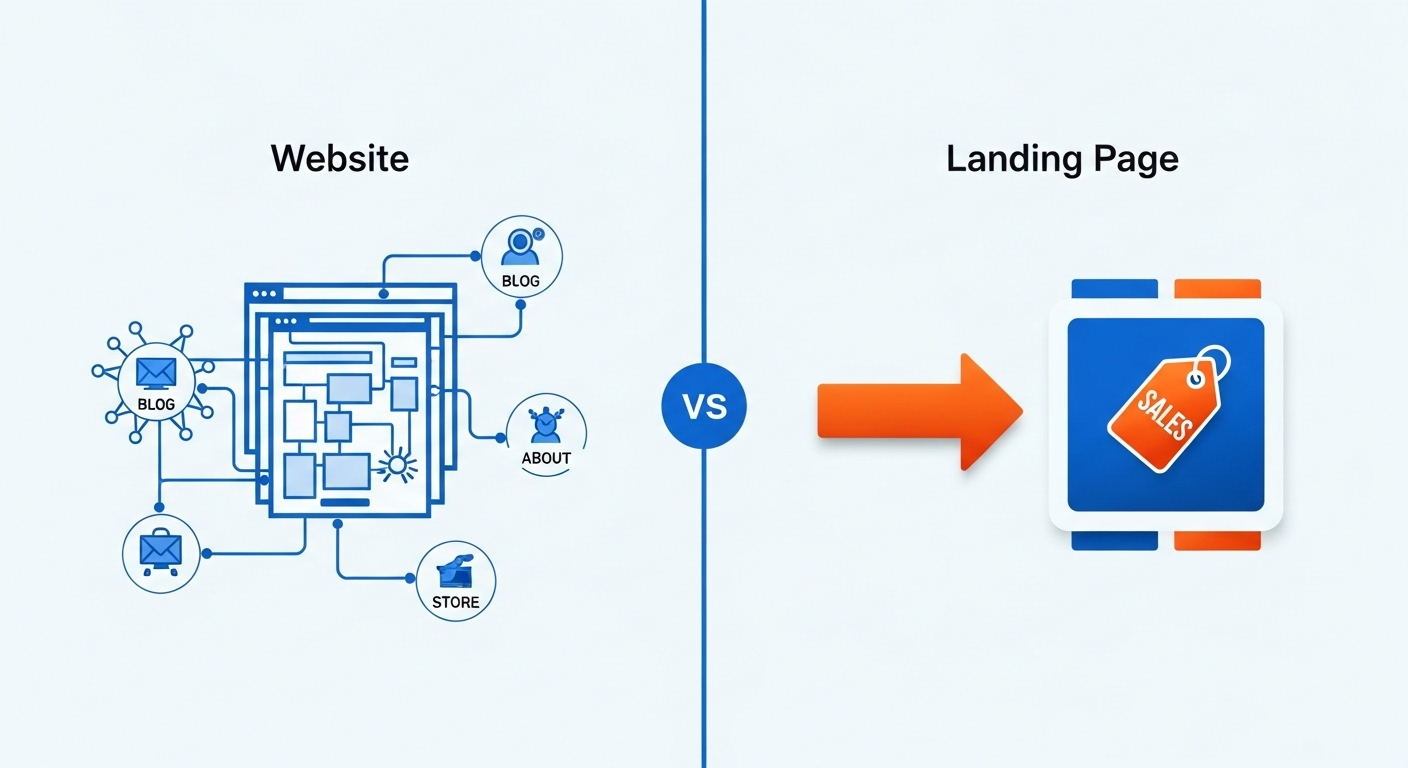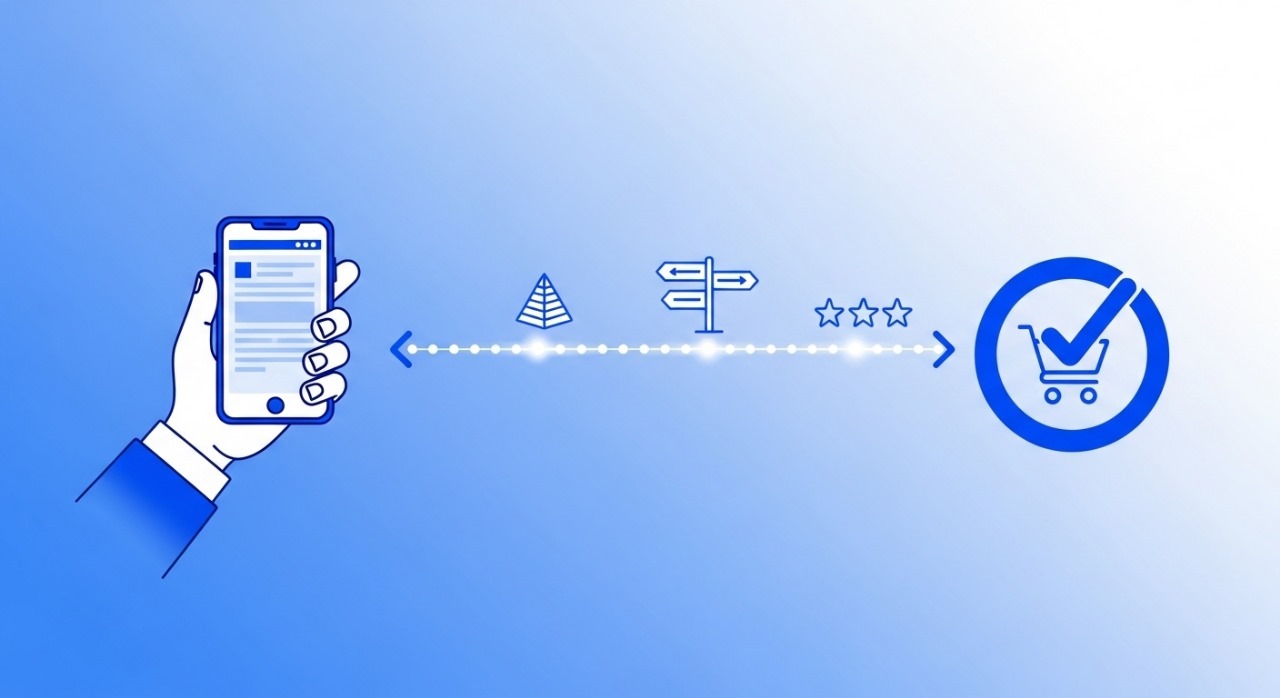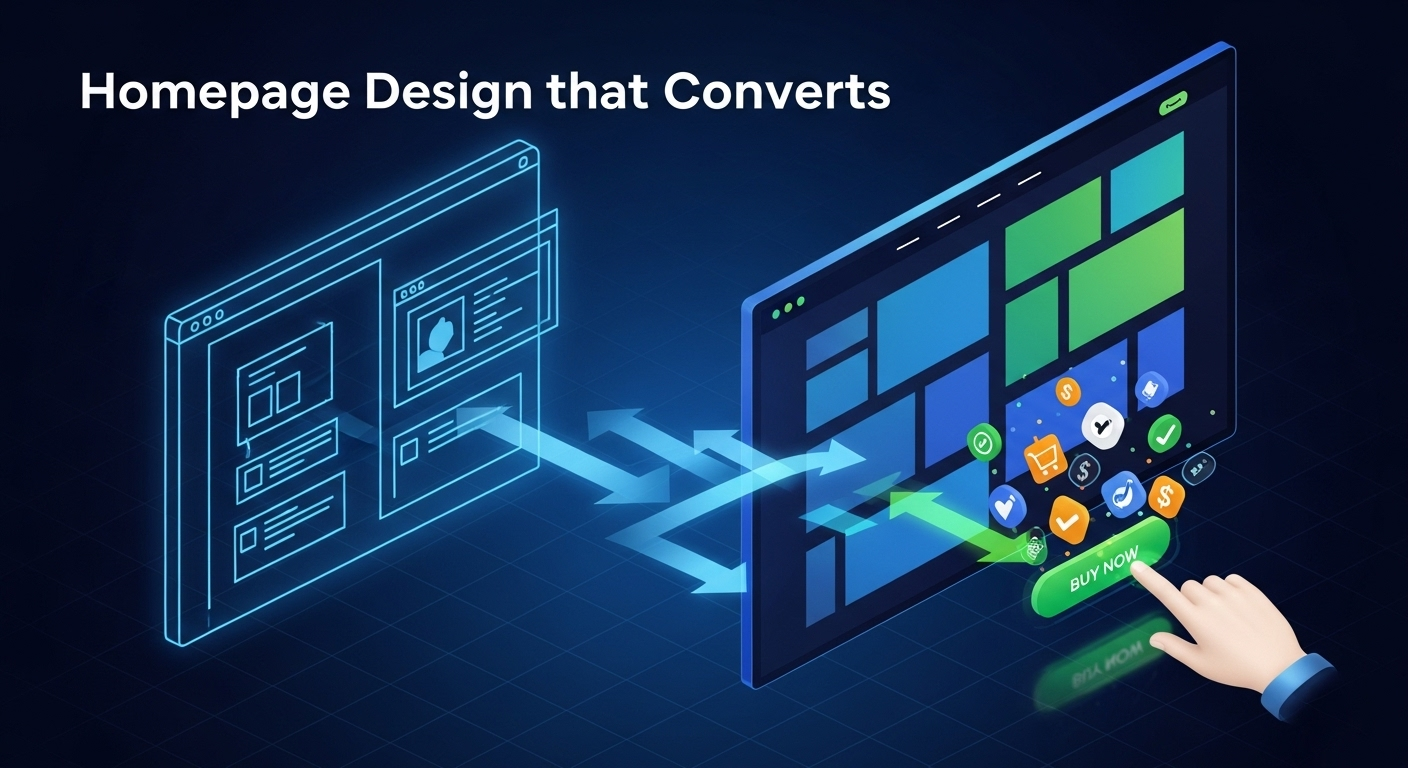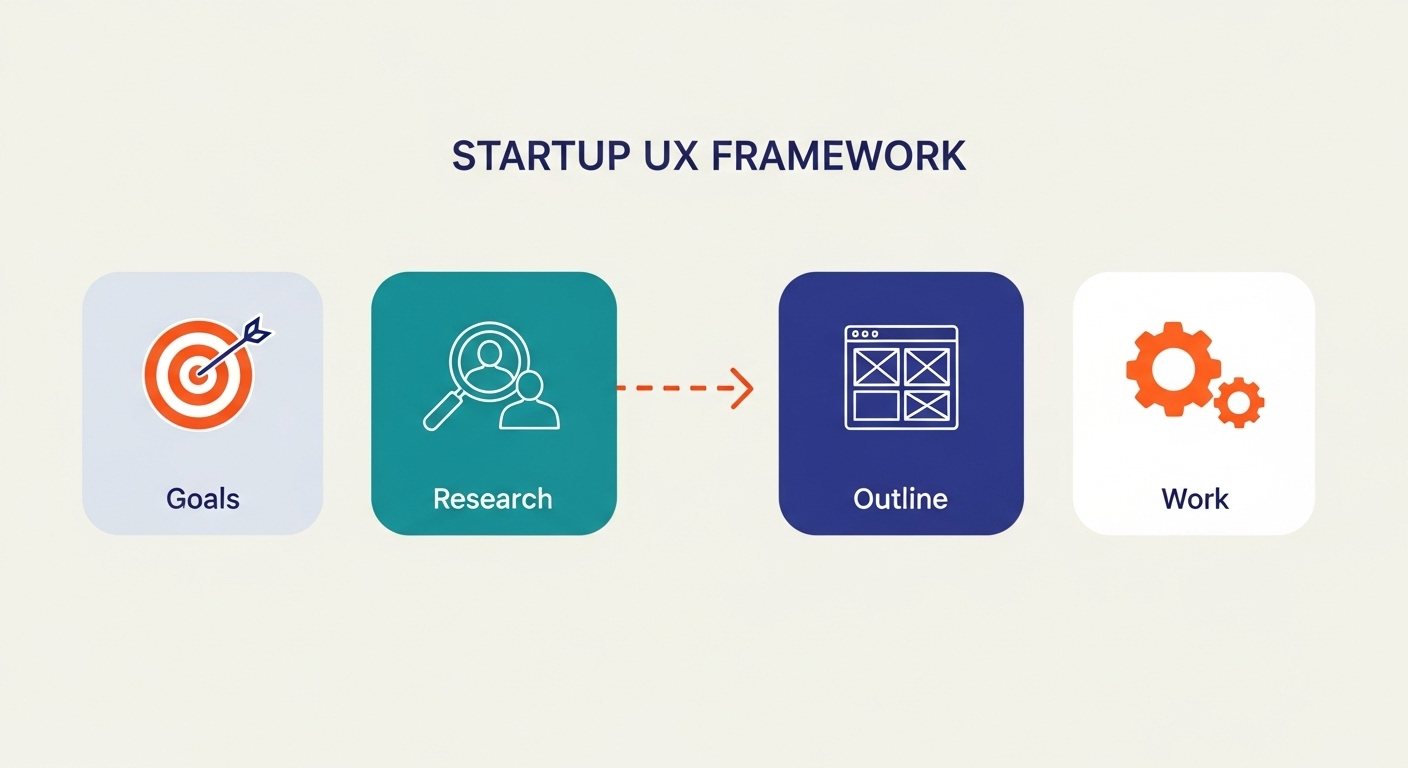Landing Page vs. Website | What You Actually Need in 2025
Hi, I’m Dillion Hughes. For the past three years, I’ve been a Project Manager and Brand Specialist here at Evietek. My journey into the software industry wasn't a straight line. I started from scratch, piecing together skills that not only met market demand but also genuinely fit my personality. It’s a process of constant learning, and through my writing, I aim to share practical insights to help you find the digital skills and tools that actually work for you, not just what's trending.
One of the most common points of confusion I see businesses struggle with is the “landing page vs website” debate. Did you know that the average landing page conversion rate is around 9.7%? That's a powerful statistic. It might make you wonder if you should just scrap your website for a series of high converting landing pages. The reality is a bit more nuanced. A website acts as your digital storefront, a complete hub for your brand identity. A landing page is more like a specialist salesperson, laser focused on one single goal. This guide will walk you through the essential differences. We will explore their unique roles so you can confidently decide which one, or which combination, you actually need to smash your 2025 marketing objectives.
TL;DR: The Short Answer
A Website is Your Digital Home: Multi-page hub with navigation, built to encourage exploration and long-term trust.
A Landing Page is a Specialist Salesperson: A single, standalone page with one goal and no navigation, built to convert campaign traffic.
The Core Difference is Focus: Websites build authority through browsing; landing pages drive action and conversions.
Use a Website For: Credibility, full service/product coverage, and long-term SEO traffic.
Use a Landing Page For: Paid ads, gated downloads, special promotions, and event registrations.
The Final Verdict: Don’t pick one. Use both—your website as the foundation, landing pages as campaign-specific conversion tools.
What is a Website? The Digital Hub of Your Brand
Think of a website as your business’s central online headquarters. It’s a collection of many interconnected web pages, all hosted on a single domain name that you own. This is where people come to get the full picture of who you are and what you do. The primary purpose of a website is to encourage exploration. It serves multiple functions at once—informing visitors about your company, showcasing products or services, building your brand’s personality, and providing comprehensive information for different audiences.
The structure of a website is built for this browsing experience. You’ll find multiple pages (home, about, contact, blog, product/service pages) and a clear navigation menu that guides users through different sections. The focus is intentionally broad to serve diverse visitor intents—from potential customers to job applicants to investors—making it your all-in-one digital presence.
What is a Landing Page? Your Conversion Focused Powerhouse
A landing page is a standalone web page created for a specific marketing or advertising campaign. It’s where a visitor “lands” after clicking an ad, email link, or social post. Its purpose is singular: conversion. Whether that’s lead capture, a direct sale, or event registration, every element supports one call to action (CTA).
Key characteristics include a single, focused goal; minimal or no navigation to remove distractions; and tightly aligned messaging that mirrors the ad or link that brought the visitor there—creating a seamless, reassuring experience that boosts conversion rates.
Key Differences: Landing Page vs. Website at a Glance
- Main Objective: Websites inform, engage, and deliver a broad brand experience. Landing pages convert for one specific campaign goal.
- Navigation and Links: Websites use comprehensive navigation for exploration. Landing pages limit navigation to keep focus on the action.
- Content Focus: Websites cover varied content for different user needs. Landing pages feature persuasive, single-offer copy.
- SEO Approach: Websites target long-term SEO and many keywords. Landing pages are typically used with paid traffic and aren’t SEO-centric.
Your Questions Answered
People Also Ask
Neither is universally better. Landing pages excel at converting traffic from specific campaigns. Websites excel at building long-term presence, trust, and organic traffic.
Rarely. A one-page site can work for very simple offerings, but most businesses need the trust signals, depth, and SEO benefits of a full website.
Yes. It’s a standalone page (often on the same domain) designed without main navigation and built solely to drive one action.
Page builders cost roughly $20–$300/month. Custom freelance pages can range from $300–$3,000, with agencies higher depending on scope.
Lead Generation (form capture), Click-Through (pre-sell before checkout), and Sales Pages (long-form direct selling).
When to Use a Landing Page: Scenarios for Success
Use landing pages for targeted initiatives where message-match and focus drive results: paid ad campaigns (Google, social), gated lead magnets (ebooks, webinars, free trials), product launches, event registrations, and limited-time promotions. Matching the ad’s promise to a dedicated, distraction-free page consistently outperforms sending traffic to a generic homepage.
When a Full Website is Non-Negotiable
A comprehensive website is essential when you need brand credibility (about pages, case studies, trust signals), a diverse product/service portfolio with depth, a blog/resource center for long-term SEO, robust customer support content (FAQs, help docs), or full e-commerce capabilities with categories and checkout. A single landing page can’t replace this breadth.
Pros and Cons: A Balanced View
- Landing Page Pros:
- Higher conversion rates due to focused messaging.
- Easier to track campaign-specific metrics and ROI.
- Faster to create and launch for time-bound campaigns.
- Landing Page Cons:
- Limited information may leave questions unanswered.
- Generally weak for organic search on their own.
- Resource intensive if every campaign needs a unique page.
- Website Pros:
- Builds long-term brand equity and trust.
- Strong potential for sustainable organic traffic (SEO).
- Comprehensive resource for all audience stages.
- Website Cons:
- More complex and costly to build/maintain.
- Broad content can distract from a single conversion goal.
- Usually lower conversion for targeted campaigns vs. a dedicated page.
Conclusion: It's Not a Battle, It's a Partnership
For nearly every business in 2025, the answer isn’t either/or—it’s both. Your website is the foundation and digital storefront where customers explore and build trust. Your landing pages are the specialized tools you deploy for campaigns to drive specific actions and maximize ROI.
By understanding their distinct roles and aligning them, you get the best of both worlds: long-term brand growth with a credible, SEO-friendly website and immediate performance gains from high-converting landing pages. Ready to start building your digital future?



